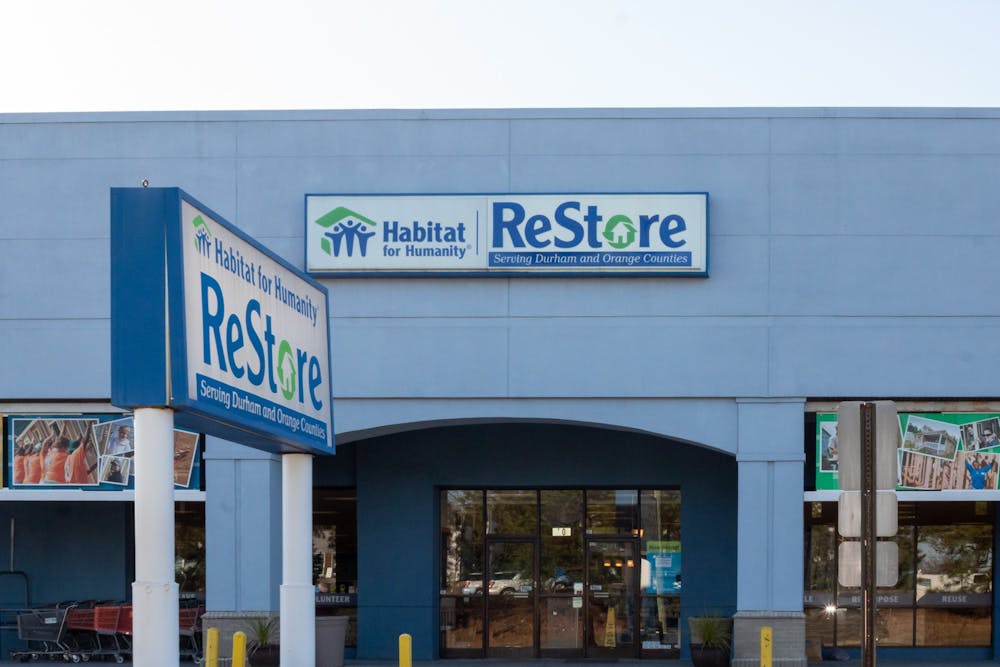According to the report, 89 percent of the families it has served have been households of color since Orange County Habitat's founding in 1984.
Black communities historically and currently face systemic issues of housing discrimination and redlining. The report also addresses how the COVID-19 pandemic has presented new challenges for Black households.
The report discusses how homeownership is a main driver of the racial wealth gap because homeownership is often the largest source of wealth for individuals. The median net wealth of families by race in 2019 nationwide was $188,200 for white families and $24,100 for Black families.
Jennifer Player, president and CEO of Habitat for Humanity of Orange County, said the lack of access to down payments and banks willing to give loans often hinders Black homeownership. She said that most first homes are bought with support from one’s family.
“Because of the generational nature of people of poverty, people who don’t have families who can give them that down payment often times are not even able to get started in having an opportunity to own a home,” Player said.
Historically Black neighborhoods in Orange County like Northside and Pine Knolls were focus communities with homes impacted by Habitat’s work, according to the report.
“In that community (Northside), the families who were able to purchase homes there have been able to build wealth over their lifetime,” Player said. “They now own an asset that they can pass down to other generations of their family.”
Player said that Habitat is just one part of this movement and that many Black-led organizations have been spearheading efforts of organizing and advocating for Black homeownership.
“We feel strongly that in order to succeed in our efforts, that it requires intentionally building coalitions around these issues and centering the voices of those who have lived experience of housing insecurity in our community,” Player said.
Both Habitat and local nonprofitEMPOWERment, Inc. are members of the Orange County Affordable Housing Coalition.
Delores Bailey, the co-chairperson of the NAACP Housing Committee and executive director of EMPOWERment Inc., said the Northside and Pine Knolls communities, among others, have also been a focus of her organization since the founding of EMPOWERment, Inc.
According to Bailey, EMPOWERment, Inc. helps facilitate rentals and serves as one of the largest nonprofit landlords in Orange County. She added that the organization works to find housing in traditionally African American neighborhoods across Orange County.
To get the day's news and headlines in your inbox each morning, sign up for our email newsletters.
“Several of the people that have passed through our home buyer’s classes have purchased Habitat homes,” she said. “We have always worked collaboratively, trying to help each other whether it's a homeowner or a renter.”
Daniels said she would encourage anyone interested to apply for a program with Habitat. She advised people not to get discouraged if they get turned down originally as she did.
“If you get turned down, go ahead and reapply,” she said. “More than likely your situation has changed.”
Moving forward
Cami Schupp, board chairperson for Habitat for Humanity of Orange County, announced at the breakfast that Habitat Humanity of Orange County plans to build 148 affordable housing units for homeownership in the next five years.
“We’re upping our game y’all," she said at the breakfast. "We’re going for it. We want to make an impact.”
Kimberly Cameron, who currently serves as the executive director of North Carolina A&T Real Estate Foundation, Inc. in Greensboro, said she thinks people often think that housing issues can be resolved at a high level through government policy.
But she believes that there are many factors involved with affordable housing for Black communities and a holistic approach must be taken to address solutions.
“You can’t look at (solutions) linear, that’s not going to fix anything,” she said.
Cameron stressed that years of racial motivation behind changing laws and creating racial issues has led to this point.
“That same vigor that got us into this situation, that same racially motivated vigor, needs to be the same racially motivated vigor that we need to get us out of this,” she said.
@WaverlyMcIver
@DTHCityState | city@dailytarheel.com




